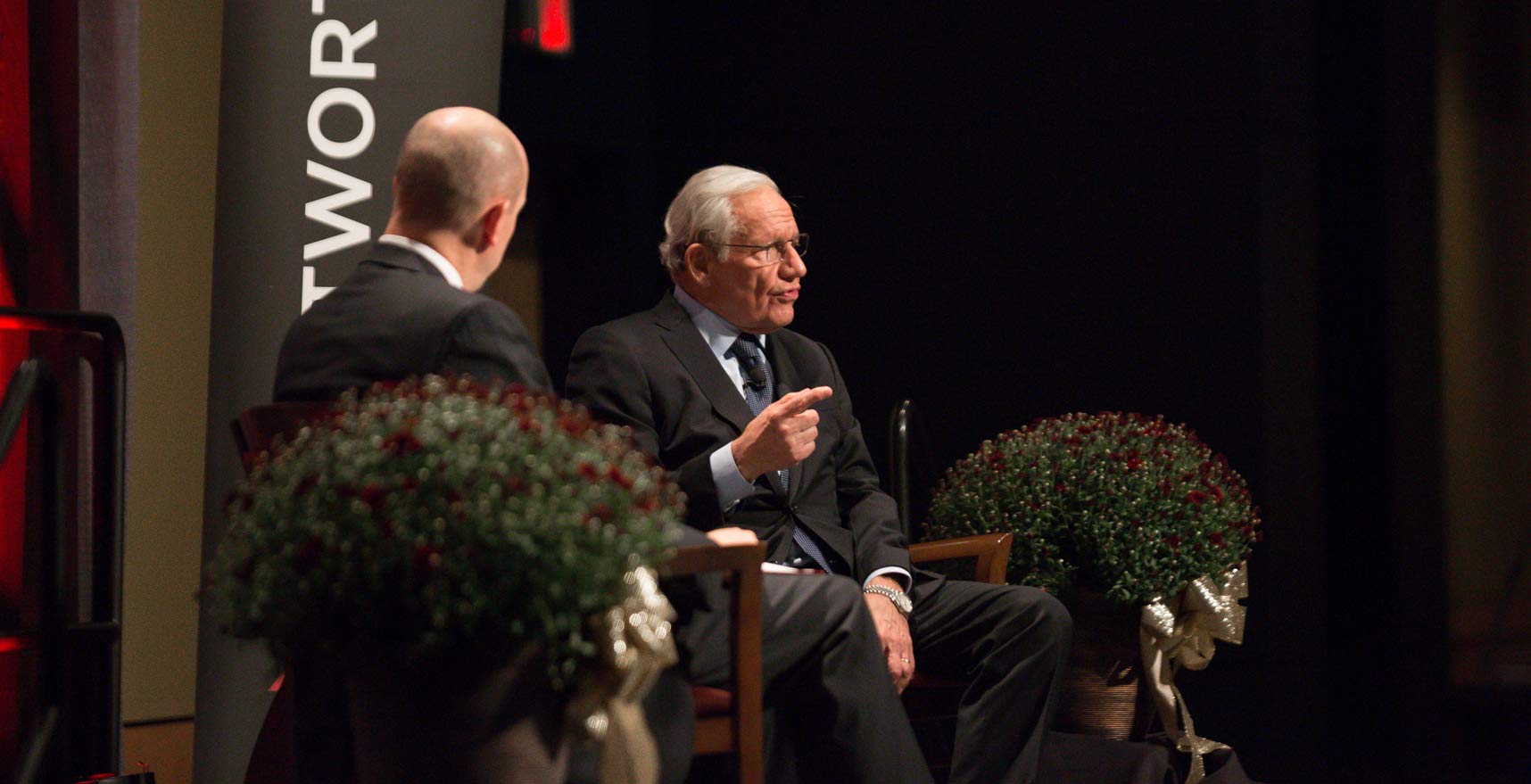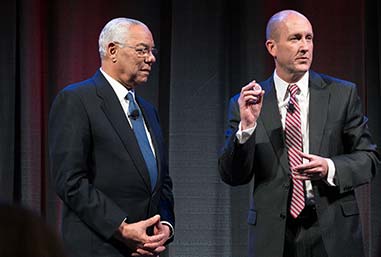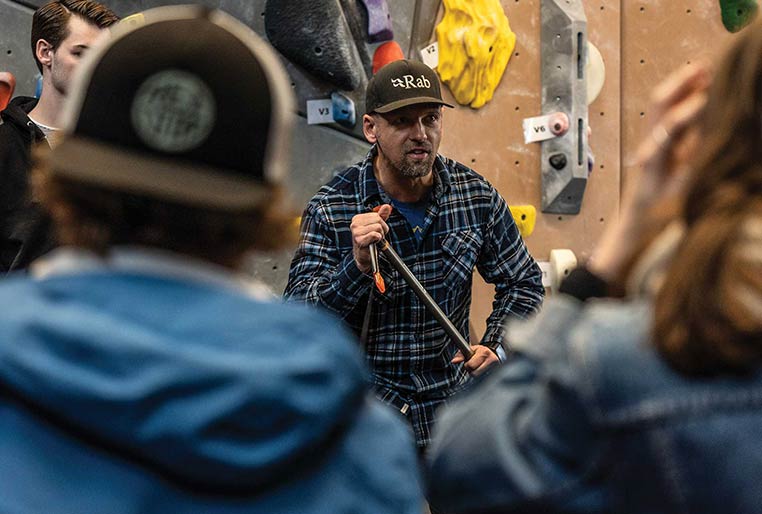'We Beat on Against the Current'
An interview by Julie Riddle '92
Investigative journalist Bob Woodward has been called the best reporter of our time and likely the best reporter of all time. His résumé certainly supports these claims: He's won two Pulitzer Prizes, for his coverage of Watergate and the 9/11 terrorist attacks, and 13 of his 19 books have been No. 1 bestsellers including his latest book, Fear: Trump in the White House. Prior to speaking at Whitworth's fall President's Leadership Forum, Woodward spoke with me for Whitworth Today.
Julie Riddle: You've been credited with pioneering the use of unnamed sources in investigative reporting, starting with the Watergate scandal. Why do reporters use unnamed sources?
Bob Woodward: Well, it's the best and only way to get at the truth. The sources are not named, but the specific incidents are. It tells you that at 5:45 p.m. on July 28, the following people met at the chief of staff's office, and then, using notes that somebody there took, explains what happened. There's no way a reporter can go into any White House, particularly the Trump White House, and have somebody tell you exactly what's going on behind the scenes. These are not anonymous blind quotes – they are reports on specific events. But you've got to be careful. I think it puts a burden on the reporter or the author to check things and make sure everyone involved is given an opportunity to talk.
JR: Former director of the CIA and Secretary of Defense Robert Gates has said of you, "He has an extraordinary ability to get otherwise responsible adults to spill [their] guts to him..." What essential skills do young journalists today need to develop?
BW: Patience. Second, patience. Third, patience! Do your homework, and go back to people many, many times. In the book on Trump, one person in his inner circle who I interviewed, in the transcripts of the interviews, there are 110 pages. That's a lot of interviewing, going back and back, trying to find out, to get notes and documentation.
Also, I think there needs to be a realization that we're not without flaws in the media. I've certainly made a lot of mistakes – too many. I've not understood the import of lots of things, and so you've got to take it slow, and of course taking it slow in the internet age is forbidden. It is really, really difficult. But that, I think, is the responsibility. I also think that when we make mistakes, we need to acknowledge them, and at the same time I think we need to maintain an aggressive edge.
Is it going to be a bumpy ride? Many times, certainly. But we need to be fortified. We have our procedures. It's like when you go back and look at the Watergate coverage. It turns out that when you examine [our reporting] against the information that came out in [former President Richard] Nixon's tapes in the investigations, [our coverage] was a very conservative, cautious rendition. And I think we're going to find that to be the case with President Trump. What was it that F. Scott Fitzgerald wrote? "We beat on against the current."
JR: You've been at the forefront of reporting on some of the most significant news events of the past 40-plus years. How have you seen reader response to your work change over that time, especially now that readers can use digital tools to respond and react to your reporting?
BW: I think it's great that readers can respond. Social media has its downsides, just as the internet does, but it's good that people express themselves. I applaud it – that's what the First Amendment is about. When Carl Bernstein and I did the Watergate reporting and the Watergate book All the President's Men, about Nixon's last year in office, we sold maybe six to seven hundred thousand hardback copies. The Trump book sold over 2 million copies. I think that response shows that people realize it is an aggressive effort to get detail and the best attainable version of the truth of what has gone on. The book shows we have a governing crisis.
JR: Jon Meacham's book The Soul of America speaks to the theme, "Our country has overcome division and fear before, and eventually we'll be OK." Our current climate of partisan fury is not new. Are you optimistic or pessimistic about our country coming through its present challenges? Will the "better angels" of our nature prevail, as Meacham says?



